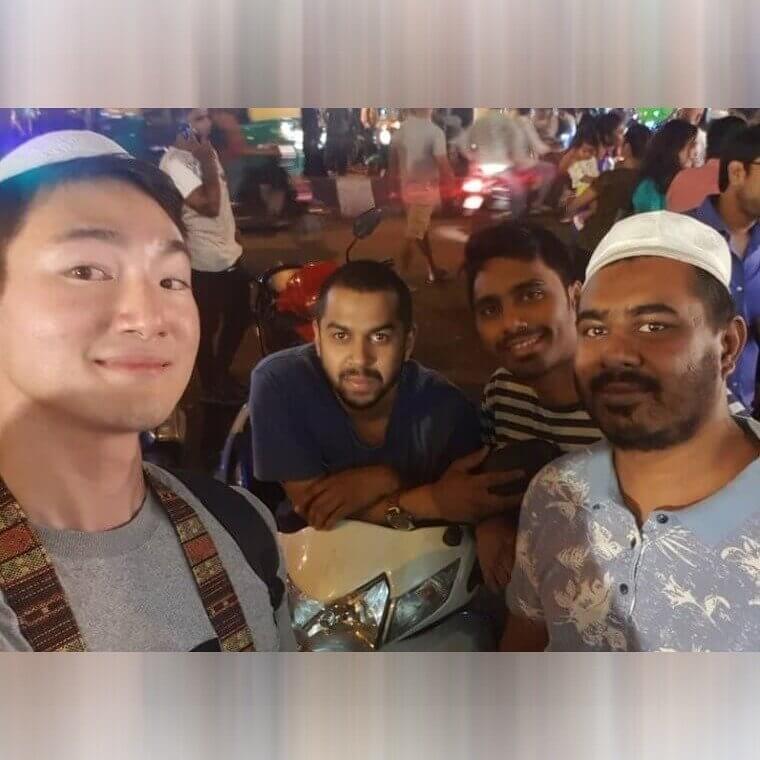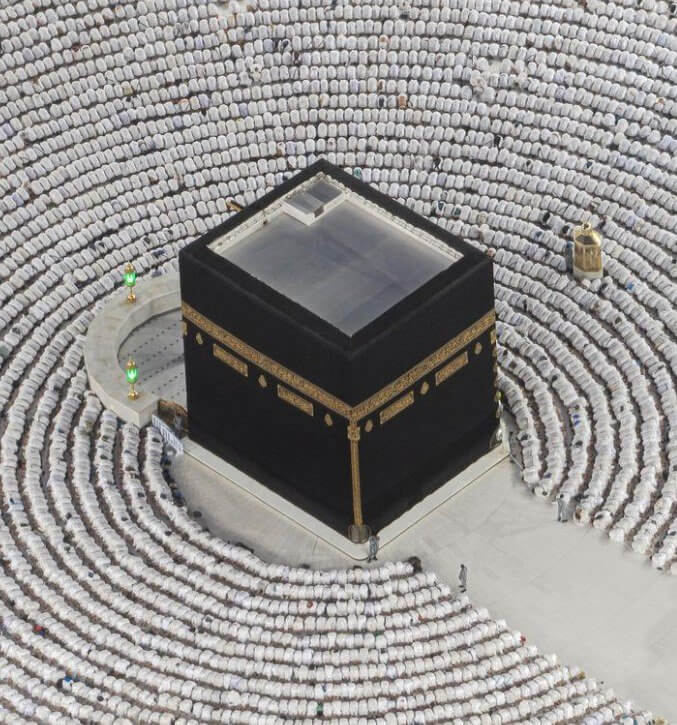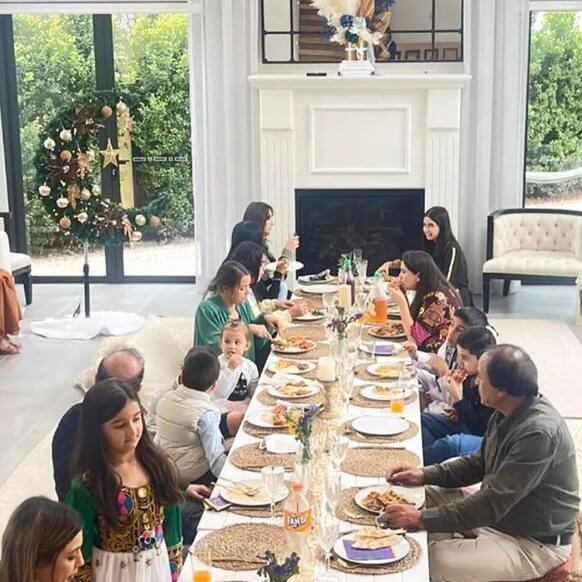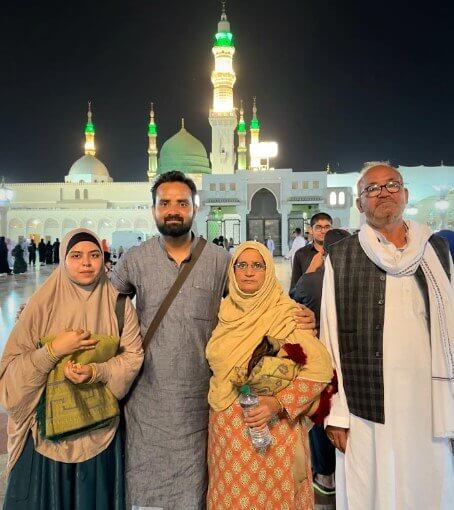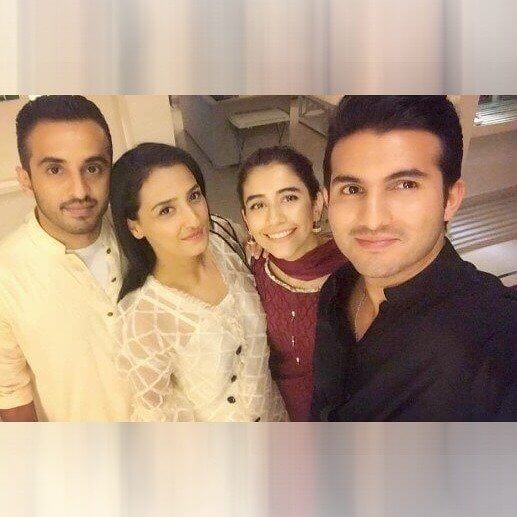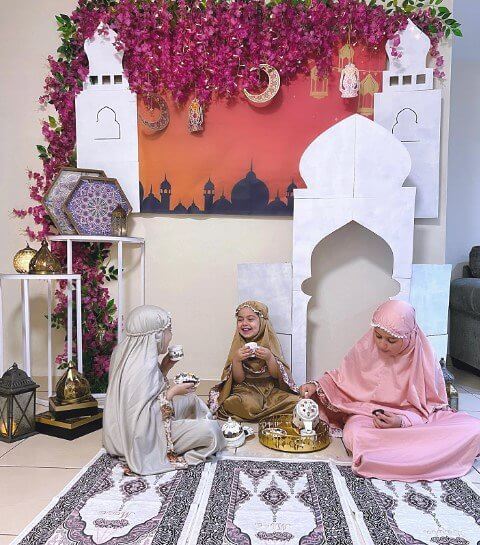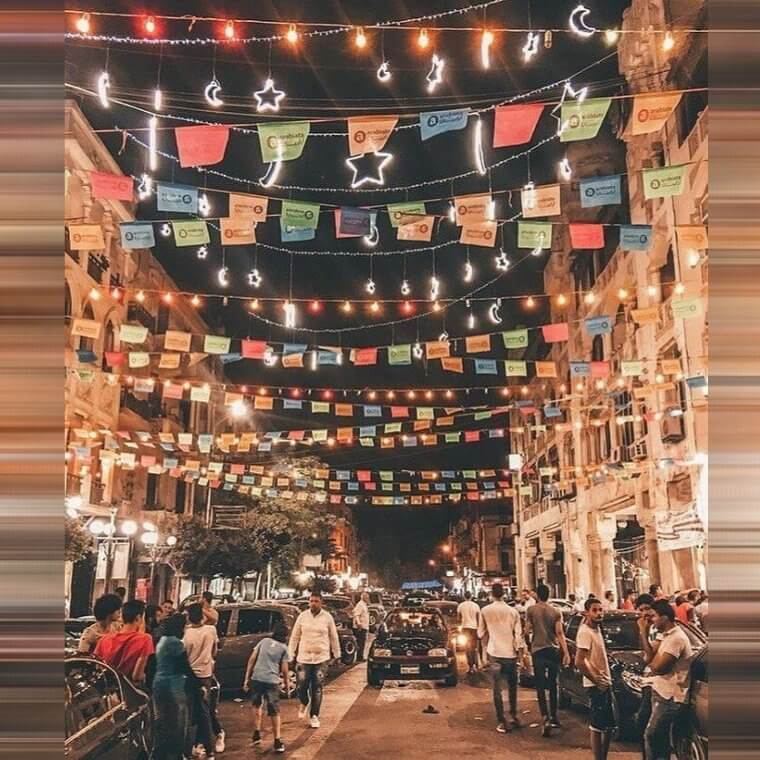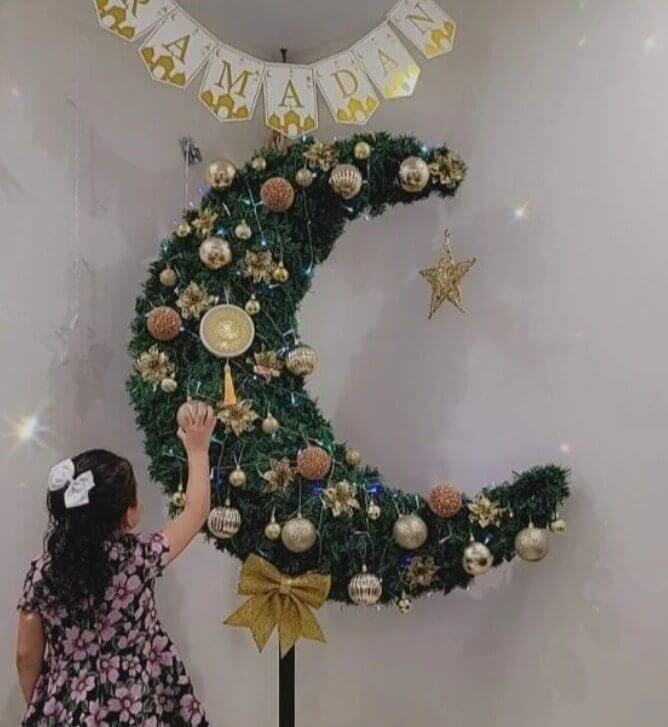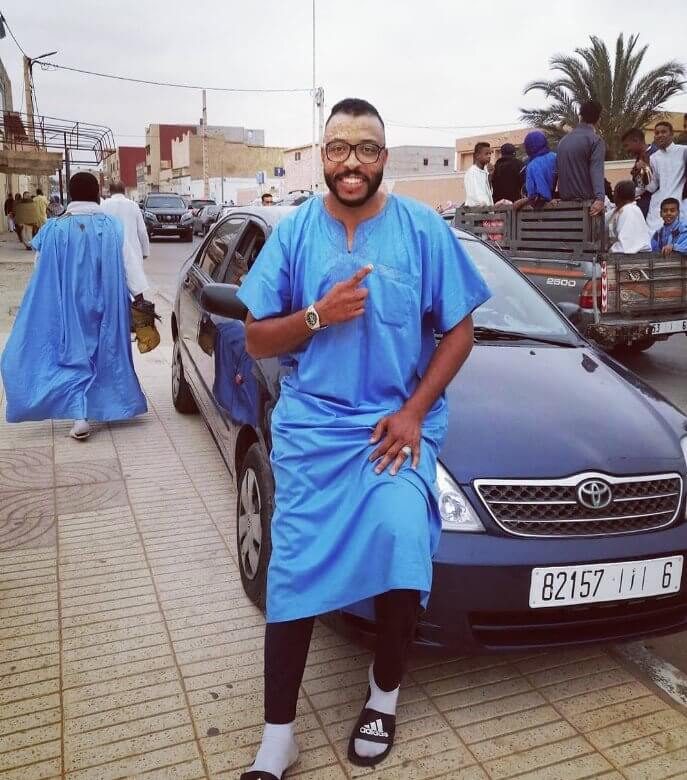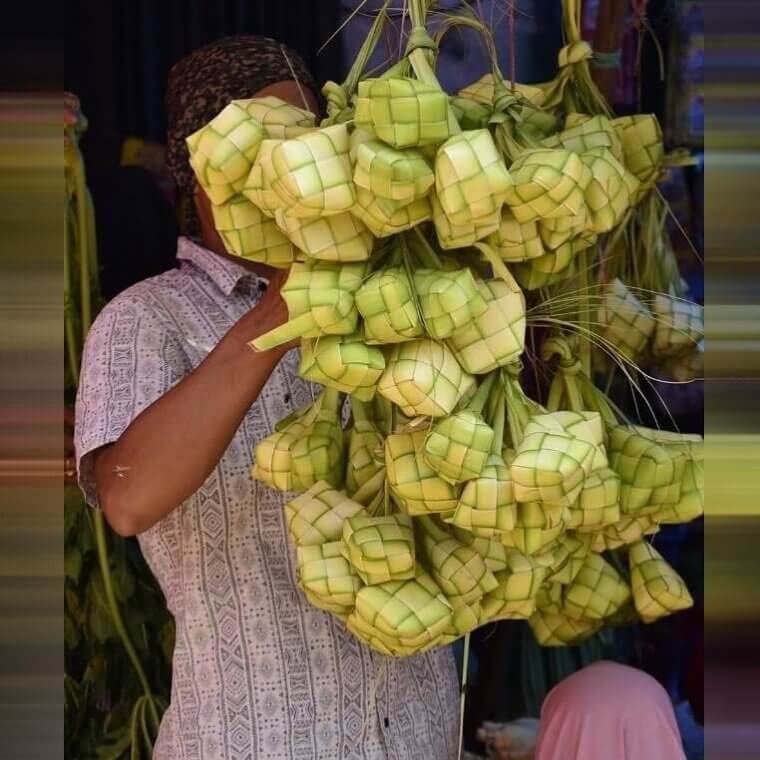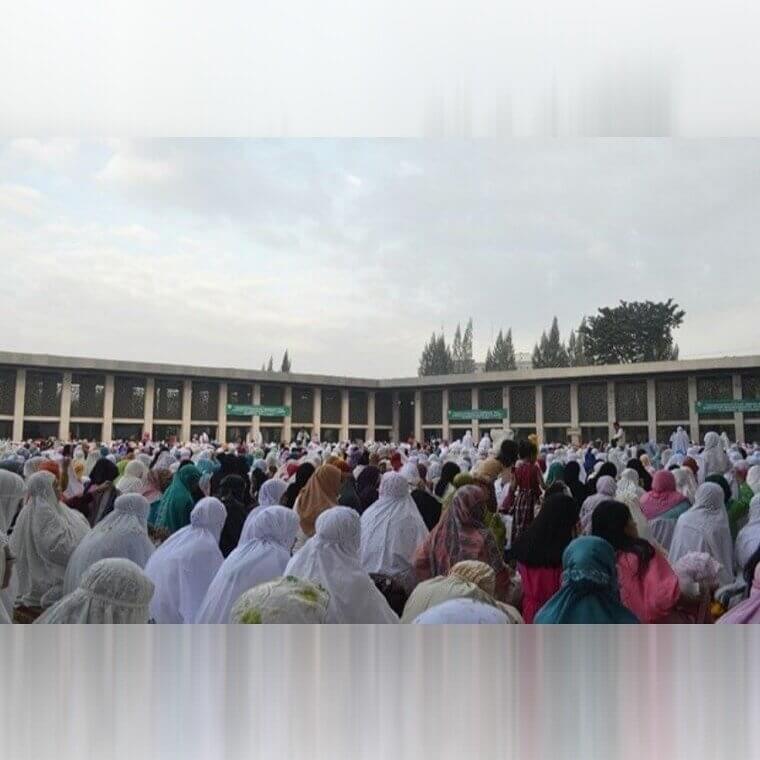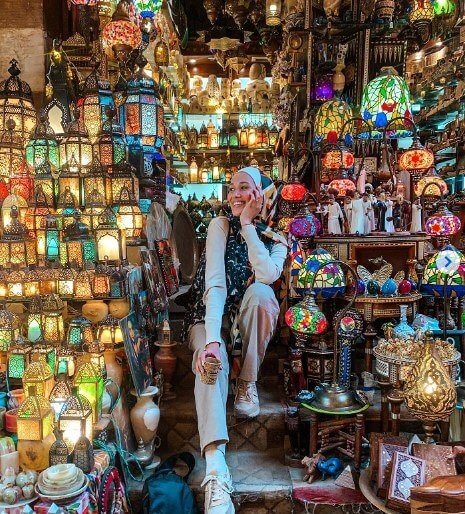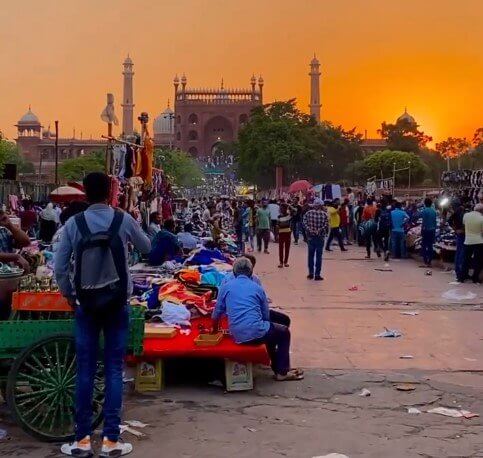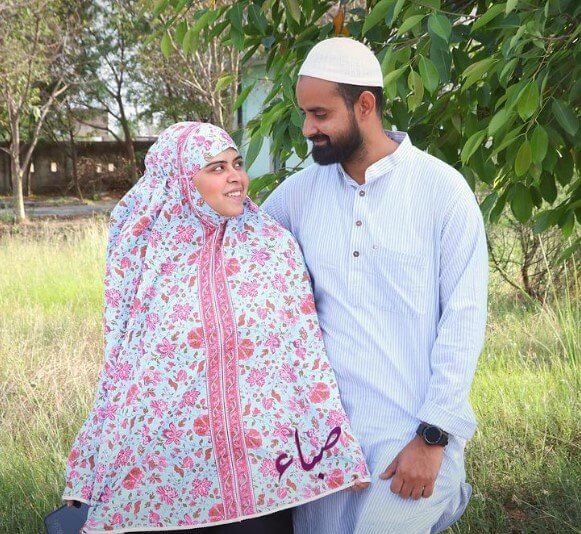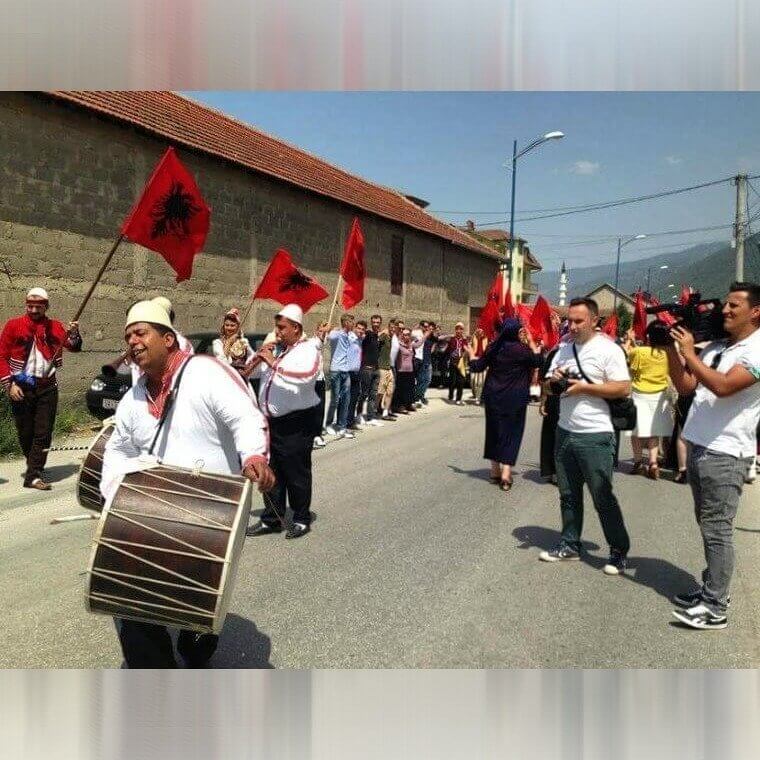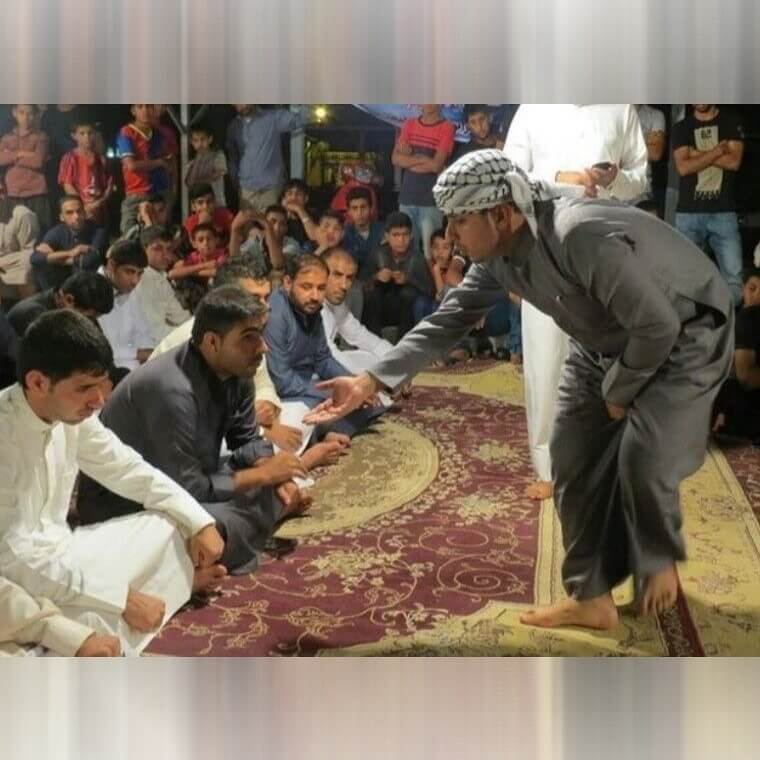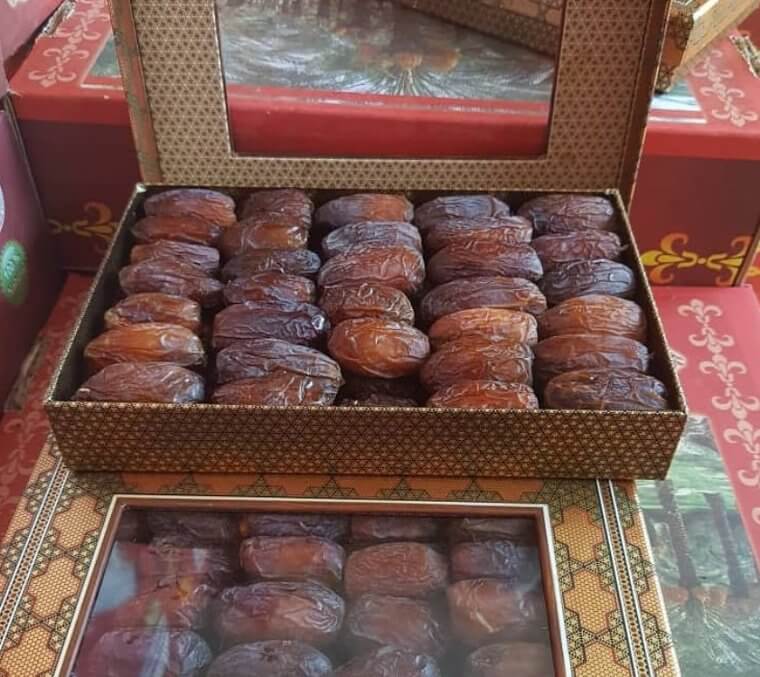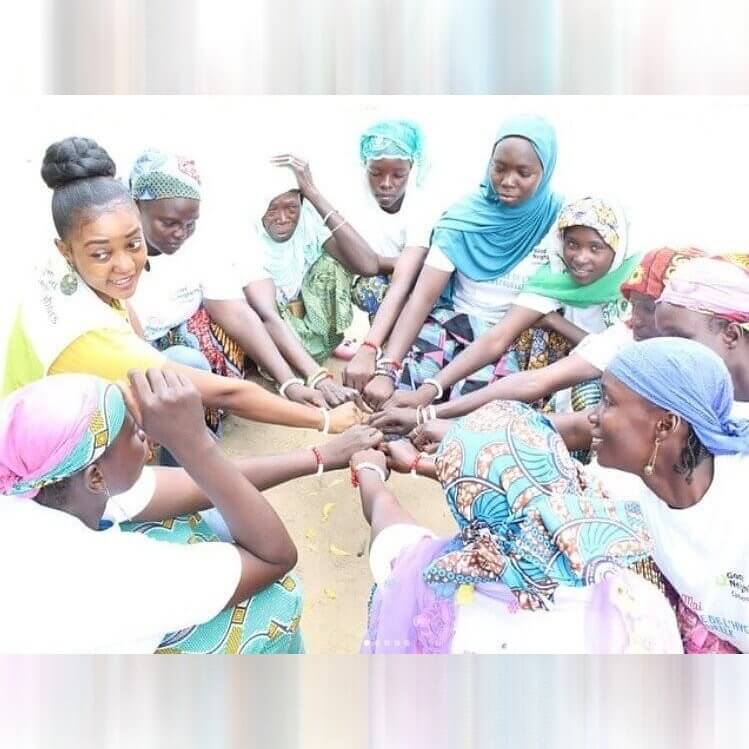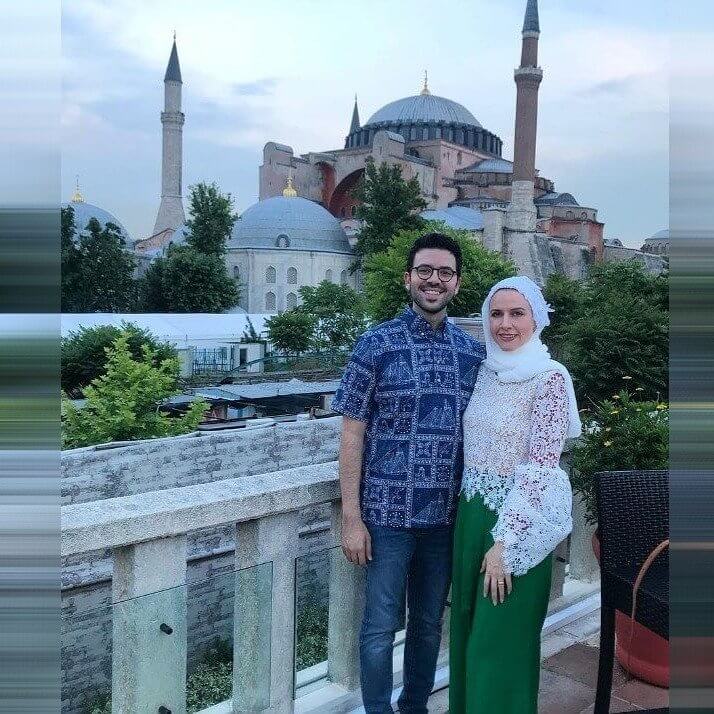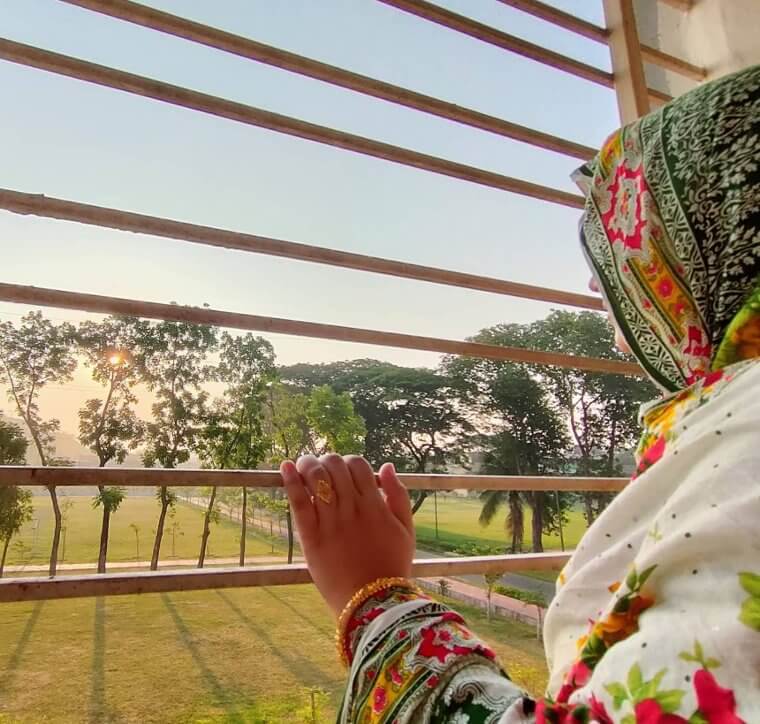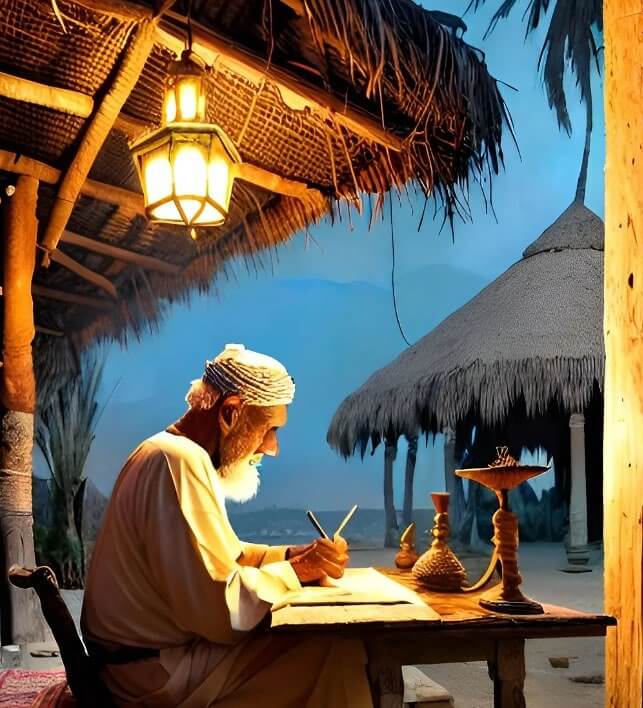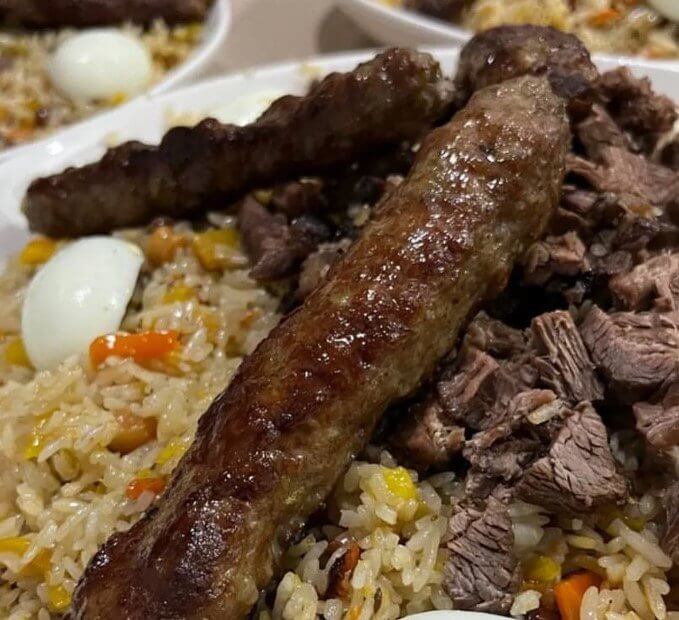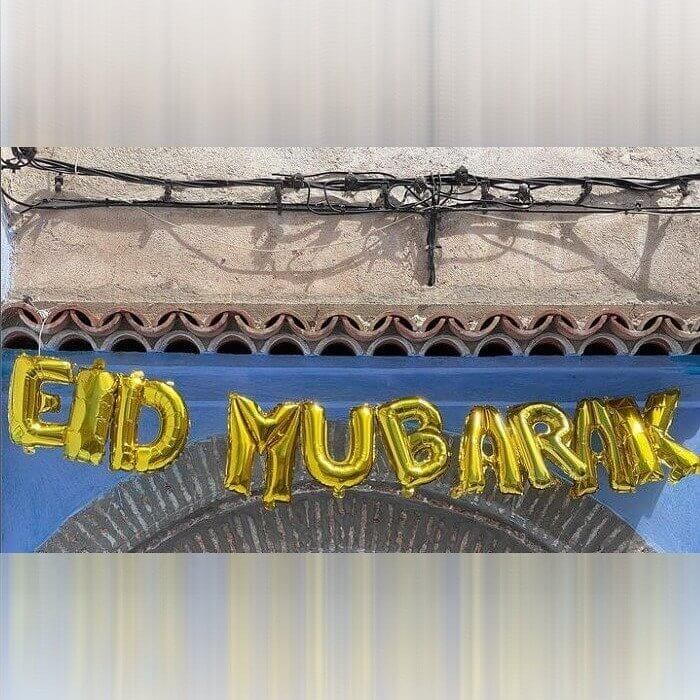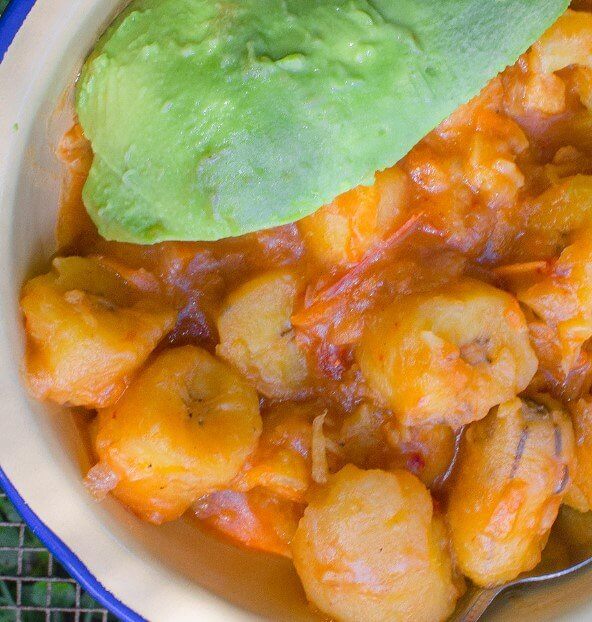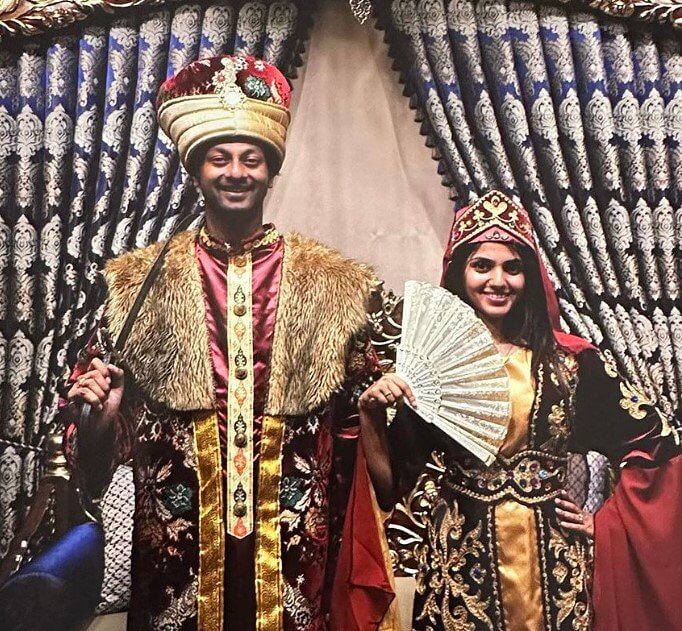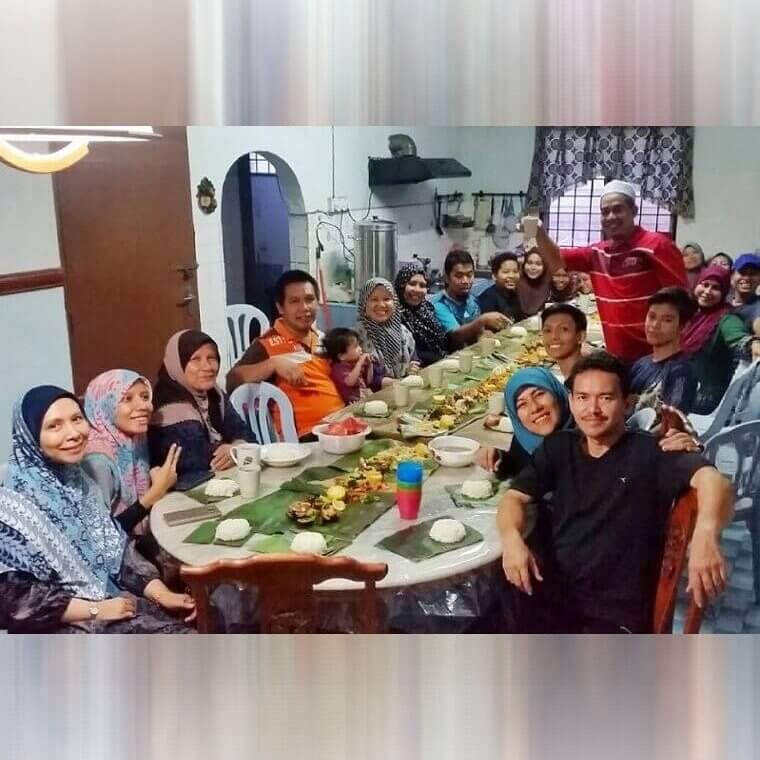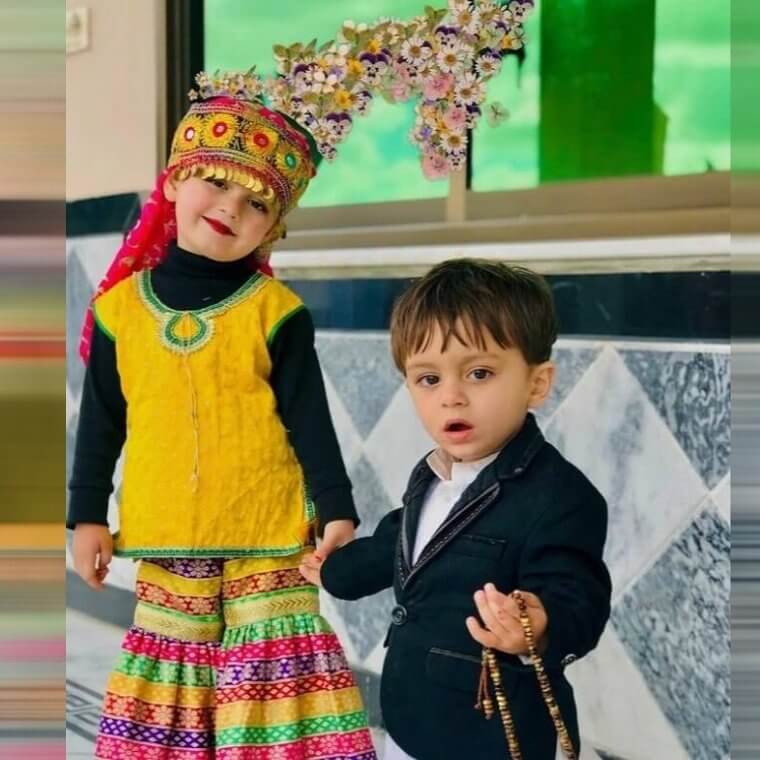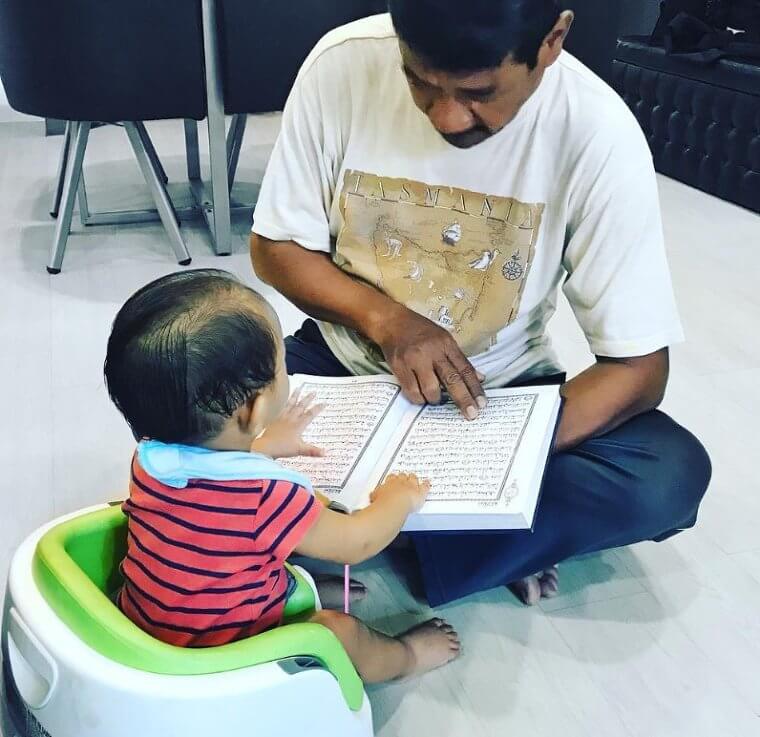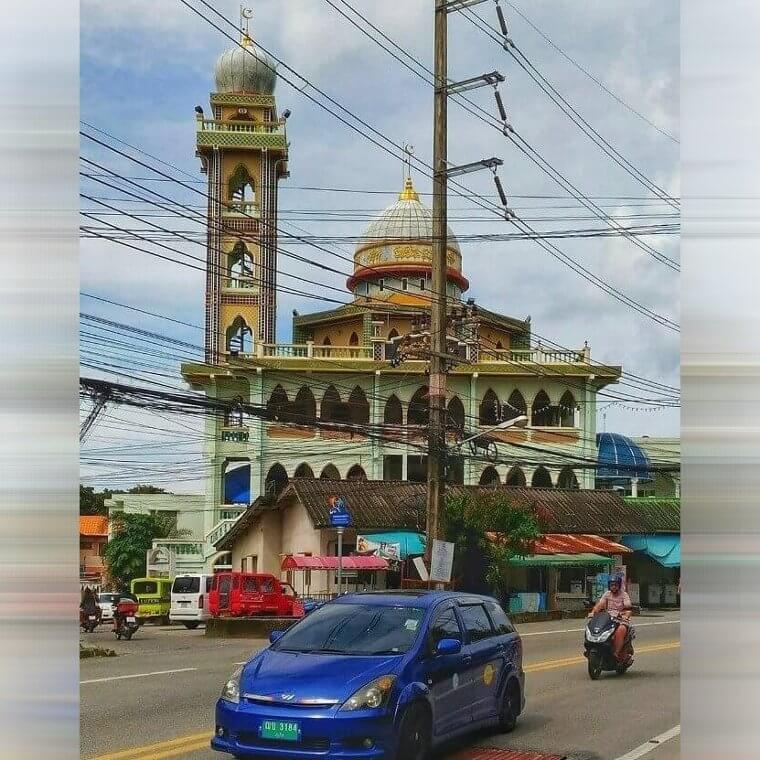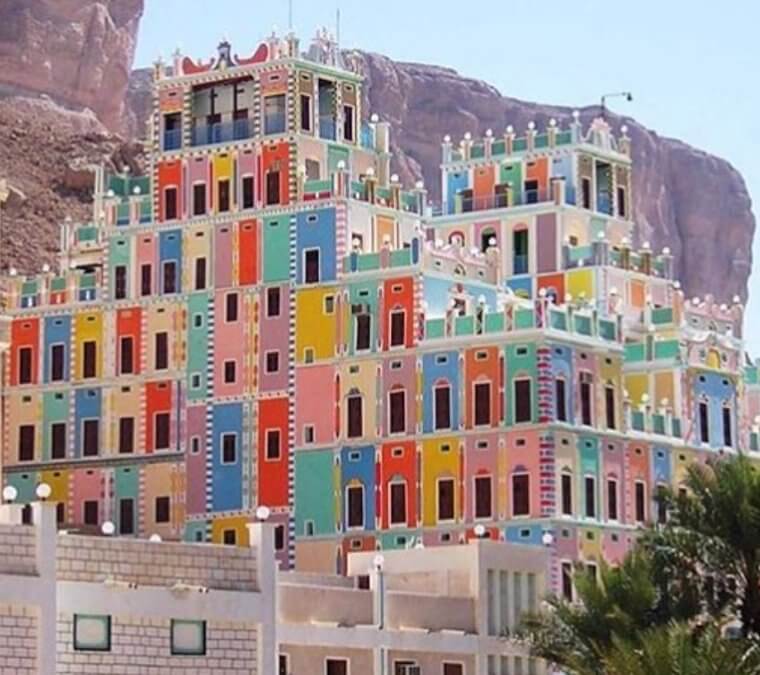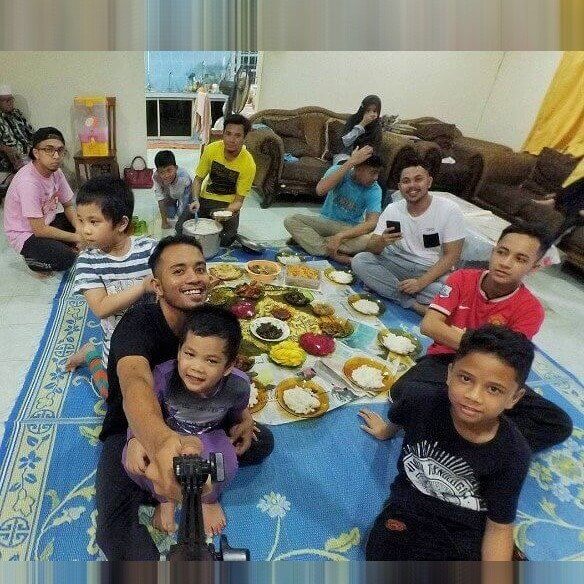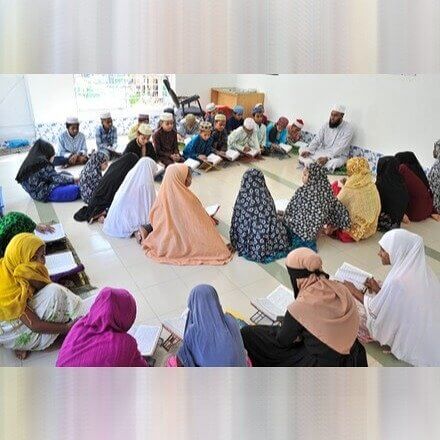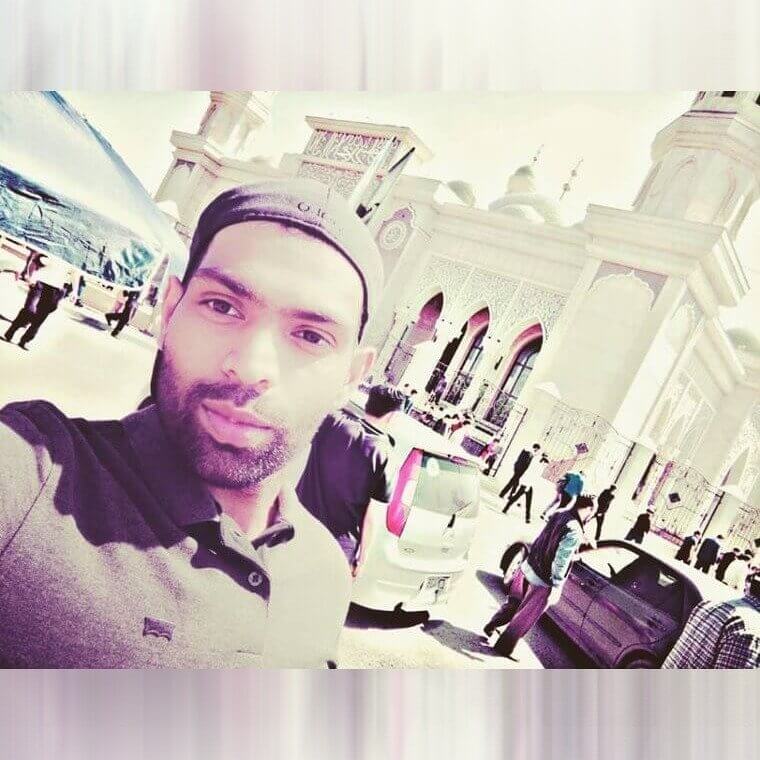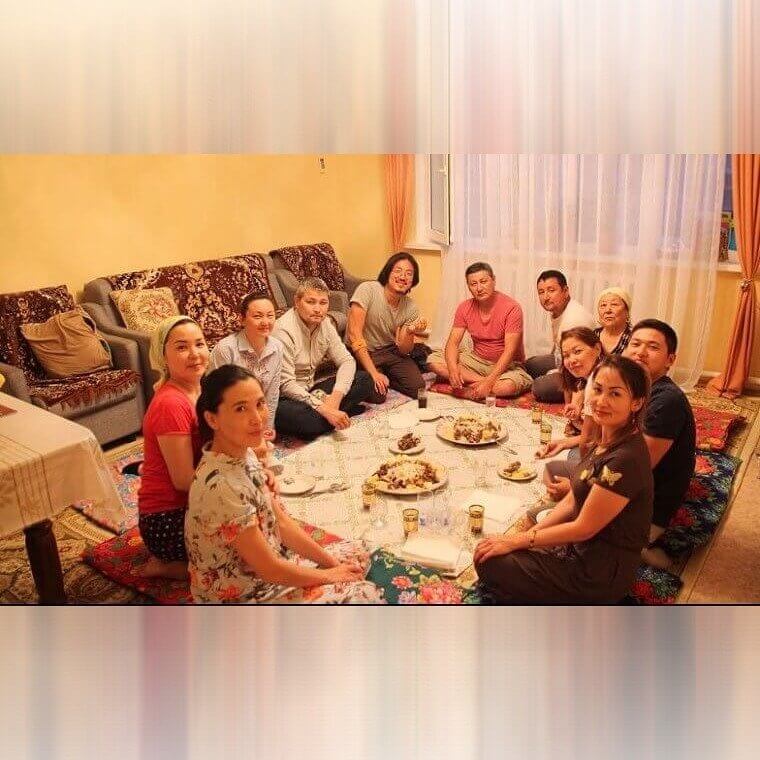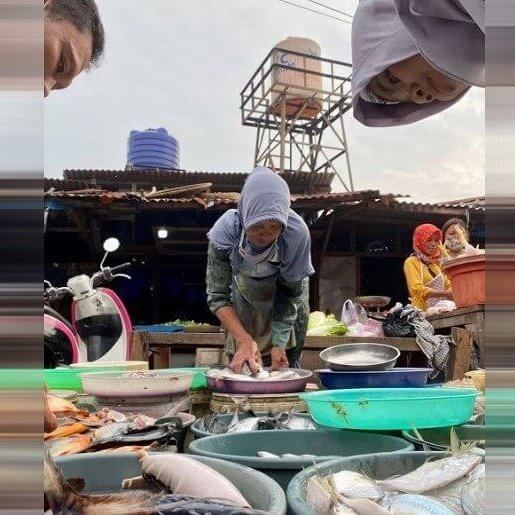Indian Muslims Receive a Special Wake-Up Call
Every country around the world has its own Ramadan traditions, and this is no different in India. In fact, Muslims in New Delhi have been waking up in the same way since the Mughal times - and that's with the help of the "seheriwalas” or "zohridaars." These people have the honor of being a town crier for the locals, and it's their job to wake Muslims up with prayers and the words of the Quran.
The job of this seheriwalas is to wake up the neighborhood before dawn prayer so that they have time to take part in suhoor and eat their morning meal before the sun rises.
Ramadan Songs Are a Must in Saudi Arabia
As Saudi Arabia is home to Mecca, the holiest city in all of Islam, you probably don't need us to tell you that Ramadan celebrations in Saudi Arabia are pretty special. Muslims make fasting and praying their priority, and they make sure that their Iftar takes place at a different family member's house every single day. During each Iftar, they eat traditional Ramadan dishes like beans, dates, pastries, and more.
But that's not all. Muslims in Saudi Arabia also love to celebrate Gergean. On the 15th day of the month, children walk around the neighborhood in traditional clothes, singing traditional clothes, and receive sweets from their neighbors.
Sleep Eating Is a Real Thing
Muslims around the world follow the rules of Iftar (eating after the sun has set) and suhoor (eating before the sun rises in the morning). And while they do everything they can to be strict with themselves during this time, there's no doubt about the fact that it can be difficult. In fact, most Muslims have mastered the art of being able to eat while still half-asleep. For some, waking up so early and immediately eating a meal just isn't a natural thing for them to do.
So, you may find that the younger generation and the older generation will eat their suhoor with their eyes half-open and half-closed. And that really is a skill to be proud of.
You Have to Drink as Much Water as Possible
During the daylight hours in the month of Ramadan, Muslims can't eat or drink a single thing. They have to stop eating and drinking before the morning prayer of Fajr, and this can be tough on the body. Of course, those who have followed these Ramadan traditions for decades are able to fast from food for hours on end - but fasting from water is a whole different story. Because of this, many people drink as much water as possible before Fajr.
You may even find people downing a whole glass of water just seconds before the morning prayer is due to begin. They do this in the hope that this will set them up for the day and offer enough hydration before the sun sets.
The Nights Are Long in Malaysia
While many people travel to Malaysia for the tropical landscapes and the sunny climates, this can often be troublesome for Muslims during Ramadan. That's because this country typically sees 13 to 14 hours of sunlight a day, meaning their fasting period is longer than average. Nevertheless, Muslims in Malaysia get to break their fast with a Ramadan dish that you'll normally only see in this country: bubur lambuk. This is a savory meat porridge.
Other Ramadan traditions include inviting friends and family to special feasts. During these feasts, everyone will say their prayers and eat dates, sugar cane juice, soya beans, and so much more.
Indonesian Students Are Given a Week off
Fasting during daylight hours can be extremely tough on the body, and it can often take Muslims a week or so to get used to the lack of food and water during this time. That's why the government of Indonesia allows school and university students to take a week off from their studies for a whole week before returning during the month of Ramadan. They want their students to get used to the toll it takes on their bodies before heading back to class.
To mark the end of the month, they also plan feasts and parties that usually include traditional drums called "Al Bodok." Normally, family and friends come together to dance to these drums.
In Pakistan, Muslims Are Prepared for Ramadan
For many Muslims around the world, Ramadan seems to creep up on them. But this isn't the case for Muslims in Pakistan. They take the Quran very seriously, which is why they also follow the month of Shaban before the month of Ramadan. For many, this is a month to prepare for Ramadan. Some start fasting occasionally to get their stomachs ready for Ramadan fasting, and they ensure that their charitable donations are all in order.
Of course, Muslims also eat many Ramadan dishes, including pakoras and samosas, fruit salads, sweet treats, and so much more. When they're not attending mosque to pray, they can also watch Ramadan TV specials from home.
Ramadan Is a Colorful Affair in Egypt
Although a large percentage of the Egyptian population is Christian, there's still a sizable Muslim population in Egypt. Because of this, the country comes alive during this time. Stores and homes are decorated in bright colors and huge, colorful lanterns, and you'll see everyone traveling from house to house, celebrating with their friends and family during this holy month. Of course, food is also a huge part of this holy month.
Some of the Ramadan dishes enjoyed in Egypt are Dolma vine leaves stuffed with tomato rice, fava beans, sweet pastries, and delicious drinks that are flavored with hibiscus and licorice.
There Are Moon Watchers in South Africa
The crescent moon is a huge part of Ramadan. This moon denotes the beginning and the end of the month of Ramadan, and seeing a crescent moon in the sky is a big cause for celebration across the world. In South Africa, they take these moon sightings even more seriously. In fact, they have their own “moon watchers” or “maan kykers” who stand at key peaks in the country and keep a lookout for the crescent moon.
However, you can't just decide to become a moon watcher. This job is only bestowed upon the worthy, and this decision is made by the South Africa’s Muslim Judicial Council.
There's a Town Crier in Morocco
For Muslims, being awake before dawn so that they can eat before the fasting begins is hugely important. But how do they wake up so early in Morocco? Well, that's where the "nafar" comes into the picture. This person is essentially the town crier, who makes it their mission to walk through the neighborhood and play a musical horn to wake up those people still sleeping soundly in their beds.
For many Muslims, the sound of the horn is a welcome addition to their morning. Not only does it wake them up, but it's also engrained in Moroccan tradition and has been for years.
Sharing Is Caring in Indonesia
It's been noted that around 87% of the Indonesian population identifies as Muslim, so it should come as no surprise to learn that the holy month of Ramadan is celebrated by a huge portion of the country. And during this time, sharing is definitely caring. Muslims spend their days giving to those less fortunate than them and regularly make charitable donations in the form of Iftar food packages and care packages to those living on the streets.
When it's finally time to break their fast, Muslims in Indonesia love eating various Ramadan dishes, but they're particularly fond of kolak. This dish is made with coconut milk, coconut sugar, and something more robust like sweet potato or pumpkin.
Waiting All Month for the Eid Moon
Muslims don't follow a traditional calendar when it comes to Ramadan. Instead of fasting at the start of the month and ending on the last day of the month, they follow the lunar calendar instead. This means that the exact dates of Ramadan are governed by the crescent moon. At first sight of the crescent moon, Ramadan starts. When the crescent moon returns again, Ramadan ends. However, this can lead to disagreements.
There's always going to be someone who doesn't agree with the dates of Ramadan and the lunar sightings, but it does allow everyone to have a deeper appreciation for the lunar cycle.
Colorful Lanterns Are a Must
If you were to visit Egypt during Ramadan, one of the things you'd notice is that the streets would be lined with colorful lanterns. And while these colorful lanterns can be found across the globe, Egypt is particularly famous for its "fanous." This Egyptian tradition has been the same for centuries, and it's believed that the first lantern was put outside an Egyptian home during the Fatimid Empire, which was between the years of 953 and 975.
Now, it's become a huge Ramadan tradition, with Muslims choosing to decorate the outsides of their homes with as many of these colorful lanterns as possible. In fact, some streets are covered in them.
Cleansing Rituals Can't Be Forgotten
In Indonesia, preparing for the holy month of Ramadan is almost as important as the month of Ramadan itself. Indonesian Muslims want to enter the month of Ramadan as spiritually and physically clean as possible, which is why those living on the Java island choose to engage in a "Padusan" cleansing ritual to mark the beginning of Ramadan. Thankfully, the island is home to countless natural springs and lakes which makes this possible.
By bathing themselves in these waters, they are purifying themselves and preparing themselves for the holiest month in their calendar. And it's something they'll do every single year without fail.
Having “Not Even Water” Talks
Only those who have experienced Ramadan for themselves really know what Ramadan means to Muslims and what really happens during this month. And while you can try and explain why you're fasting and why you can't eat food or drink water during the day to non-Muslims, there's a high chance that they're just not going to understand. There's also a high chance that you've had many "not even water" conversations.
Non-Muslims just can't seem to understand how someone can go so long without a drink, and they'll question Muslims time and time again as to why they can't just have a little sip of water.
Roman Muslims Play the Drums
One thing you might not realize about Albania is that around half of the population identifies as Muslim. This means that it's easy to spot Ramadan celebrations if you visit this country during the holy month. In fact, at sunrise and sunset every day, many Roma Muslims will take to the streets and play special ballads to mark the beginning and the end of fasting. Most of the time, this includes traditional drums.
These "lodra" drums are typically covered in animal skin and are usually red in color. Many Muslims will also enjoy these ballads with their friends and family to make the occasion even more special.
Muslims in Iraq Play a Fun Game
While Ramadan is a holy month that will really connect Muslims to their religion, fasting for such long hours can be tiresome. Because of this, Muslim men in Iraq have been doing something for centuries that will perk them up at the end of a long day - and this involves a game called "mheibes." After breaking fast and having Iftar, a group of men will pass a ring under a cloth and then take it in turns to guess who really has it.
The aim of this game is to read the body language of the people around you, and while this Ramadan tradition has fluctuated in popularity over the years, it's become very popular again.
Dates Are Everywhere
Although many countries around the world have their own Ramadan traditions, one thing that's the same across the globe is that dates are everywhere. Dates are a huge part of Ramadan tradition, as every Muslim will typically break their fast by eating dates. That's because dates are rich in carbohydrates and nutrients, which will give Muslims a boost of energy they desperately need after a day of abstaining from food and water.
In fact, this act dates back as far as the Prophet Muhammad, who once said, "When one of you is fasting, he should break his fast with dates; but if he cannot get any, then (he should break his fast) with water, for water is purifying."
Muslims in Cameroon Open up Their Doors
Cameroon is a very small country. In fact, it's only slightly bigger than the U.S. state of California. Because of this, the people of Cameroon are incredibly friendly and tight-knit - and this is proven during the month of Ramadan. Yes, a Cameroonian Ramadan tradition is for people to unlock and open up their doors before Iftar is due to start. This is an invitation for anyone to join them in breaking thier fast.
Feasting together is a huge part of their traditions, and they want everyone to feel as though they have somewhere to observe the rules and regulations of Ramadan. So, everyone is welcome.
Drummers Walk Through the Streets of Turkey
Many Muslim traditions have been around for centuries, and this is no different in Turkey. In fact, some neighborhoods in Turkey have been following the same traditions since the Ottoman times, and they still honor this legacy today. That's because these neighborhoods have their own designated drummer who wears traditional Ottoman clothes and wanders around the streets, banging traditional drums to wake people up in time for their morning prayers.
The drum they bang is traditional, too. The "davul" has been around for centuries and has become a pillar of faith, music, time-keeping, and traditional Ramadan culture in the country.
Some People Do Wake up Late
In many countries around the world, there are drums and town criers to wake you up before morning prayer and before the morning feasts begin. However, that's not the case everywhere. Some people have to rely on alarm clocks and phone alarms, which means that some people wake up late during Ramadan. Of course, there are no exceptions to Ramadan traditions, and this means that they have to go without.
If someone sleeps in too late and misses morning prayer and suhoor, they have to fast for the rest of the day on no food. By the time the sun sets, they are ravenous and ready for Iftar.
Poetry Is Big in the Maldives
When you think of the Maldives, you might think of golden sandbars and water bungalows. But this country is so much more than that. With a large Muslim population under its belt, the Maldives is also home to countless Ramadan traditions. One of the most beautiful traditions involves "raivaru," which is religious poetry that's specific to the country as a whole. Every day, they recite this poetry as a mark of their faith and their devotion to Islam.
This ancient poetry can be traced back centuries, and the people of the Maldives find great peace with the distinct rhyming patterns. Normally, they are recited during worship when everyone comes together to pray.
Ramadan Is a Family Affair in Chechnya
Just over 90% of Chechens follow the Islamic faith, which means that Ramadan is a huge holy event for the country. And while they follow the same rules and guidelines as the rest of the world, there's no doubt about the fact that Ramadan is a family affair in Chechnya. In fact, Muslims even get their late relatives involved in these Ramadan traditions. Yes, on the first day of Ramadan, Muslims in Chechnya head to their relatives' graves to pay their respects.
Any babies born during the holy month of Ramadan will be celebrated more than most, too. Baby girls born during Ramadan will be called "Marha" and boys will be called "Ramadan."
Gifts Are Given and Received In Tajikistan
Walking around a neighborhood with a bag, knocking on neighbors' doors, and asking for sweets is something that many people would associate with Halloween. And while they do a similar thing in Tajikistan, this isn't for the same reasons. During Ramadan, kids dress up in their finest clothes and knock on doors in order to spread joy throughout the month of Ramadan, sing songs, and collect gifts from their friends and family. And as you can imagine, it's a very popular Ramadan tradition.
When they can finally break their fast, the Muslims of Tajikistan tend to drink their favorite beverage, which is a mixture of tea and milk. They also eat many traditional Ramadan dishes to fill their stomachs before fasting once more.
They Make the Most of the Beach in the Maldives
When you think of the Maldives, you might think of crystal clear waters, golden sand bars, and water bungalows. But this country is so much more than its association with luxury tourism. This country is also home to devout Muslims who take Ramadan very seriously, and it's just a perk that they get to experience this holy month in one of the most beautiful places in the world. In fact, one of the Ramadan traditions in the Maldives is to head to the beach at night to try and spot the crescent moon in the sky.
Due to its location in the middle of the ocean, Muslims in the Maldives also have a lot of fish and seafood in their Iftar meals. This food is easy for them to source and also something that everyone seems to love.
Bananas Are a Big Deal in Uganda
Although the people of Uganda are primarily Christian, around 14% of the popularity identify as Muslim. In fact, they have their own Ramadan traditions, and their own Ramadan dishes that they love to eat. And while many of the foods within their Iftar meals are similar to those across the globe, they do things a little differently by adding bananas to their feasts. Bananas are considered an essential, and they can't get enough of them.
When you think about it, this makes sense. As people in Uganda fast for around 12 hours a day, they probably need this slow-releasing energy and potassian from the bananas to keep them fit and healthy while they're fasting.
Some Muslims Do Fall Asleep During the Day
Have you ever tried to stay awake after a late night bedtime, an early morning alarm clock and hunger pains gnawing at your stomach? It can be pretty difficult, and while Muslims are used to the strain that fasting for Ramadan can take on their bodies, that doesn't stop them from falling victim to the mid-day nap. Many Muslims accidentally fall asleep at work or at school, which can make for awkward conversations.
In fact, that's the reason why some countries around the world allow newbie Ramadan followers to take a week off to get themselves used to the lack of sleep and the hunger pains.
Fresh Homes Are a Must in Turkey
If you didn't already know, the holy month of Ramadan is a hugely significant religious and cultural event in Turkey. With countless Muslims calling this country home, Turkey is transformed during this month. In fact, if you visit this country during Ramadan, you may even spot the cannonballs that are fired into the sky at sunset or the gifts of silver and gold coins that are given out throughout the month.
When the crescent moon is spotted in the sky, Muslims will also spray their homes with homemade air fresheners that are typically made with rose water and musk. This is to cleanse their homes.
Their Stomachs Growl All Day
One Ramadan tradition that almost every Muslim person can relate to, no matter where they are in the world, is a growling stomach. The idea behind fasting is to feed your soul rather than your stomach, but there's no doubt about the fact that most Muslims still struggle when it comes to fasting throughout the day. They get intense hunger pains, and they can't control the grumbles that come from their stomachs.
Most of the time, this growl happens at the exact moment you don't want it to - like when you're presenting a meeting or trying to be silent in class. Nevertheless, it's all part and parcel of Ramadan.
The Children of Pakistan Fight With Eggs
Ramadan traditions in Pakistan are extremely sacred, and it's considered a hugely momentous occasion when a child takes part in Ramadan for the first time. In fact, to commemorate this occasion they gather together for a big event and wear head covers that are coated in gold. This is often considered to be one of the most memorable moments of their lives. But that's not all they get up to.
In order to stay awake at night during Ramadan, many children in Pakistan also play an egg-fighting game. The aim of this game is to crack your opponent's brightly colored egg with your own egg. If you do, you win.
Reading the Quran Is Important in Mauritania
In Mauritania, Ramadan traditions are more old-school. They tend to stick to the book, and they stand by the traditional rules and regulations regarding this holy month. And while Muslims in other countries attempt to read the whole Quran during the month, Muslims in Mauritania attempt to do this in a single night. For the average reader, this should take around 15 hours. For slower readers, it'll take more like 30 hours.
Before Ramadan starts, many Muslim men in Mauritania also choose to shave their heads and allow their "Ramadan hair" to grow instead. In order to have a blessed life, many couples also get married during this month.
Animal Sacrifices Are Common in Thailand
Ramadan dishes are all part and parcel of life during the holy month in Thailand. While Muslims in this country follow the strict rules regarding fasting, they also love to feast when the sun sets and they're allowed to eat again. In fact, they often sacrifice cattle or birds during this month to feed them and their families throughout Ramadan. They're also big on charitable donations during this time, too.
These donations come in the form of Iftah feasts. Typically, neighbors will cook up batches of food for these feasts, and then swap them with each other as a sign of respect and friendship.
Things Get Colorful in Yemen
In Yemen, Iftah celebrations are hugely important. These events see friends and family come together to celebrate breaking the fast, and they make sure to cook up the best Iftah meals in the world. However, they believe that these events should be a feast for the eyes as well as the mouth. Because of this, many Muslims in Yemen choose to paint their houses and decorate their tables for the occasion.
Alongside this, they also choose to buy new utensils during this time. This allows them to start afresh and really make the most of this holy month and the feasts that come with it.
Restaurants Are Closed in Sri Lanka
One thing you might not know about Sri Lanka is that Islam is the third-largest religion in the country. And the Muslim people who follow Ramadan have their own Ramadan traditions that they like to follow. In fact, they have one tradition that makes fasting even easier for them, and that involves closing all of the restaurants and coffee shops until the sun sets and it's time for Iftar. This takes away any desire to break their fast.
Alongside this, Muslims in Sri Lanka also do everything they can to help others who aren't able to make Iftar during Ramadan. They set up temporary food stores next to mosques and give food to those in need.
Forgetting About Fasting Is Common
In regular life outside of Ramadan, it's usual for food to be shared. In the office, in the school canteen, or even with the free samples at the grocery store. And while Muslims commit themselves to fast, sometimes it's easy to forget about this when a coworker offers you a bite of their sandwich or someone offers a free sample cookie on the street. In fact, many Muslims have had to spit food out when they remember that they're not allowed to eat anything.
Of course, they do everything they can to stick to the Ramadan traditions, but most Muslims have slipped up and forgotten that they can't even have a drink of water during this time.
Books Are Big in Bangladesh
During Ramadan in Bangladesh, you'll spot Muslims eating Ramadan dishes, making charitable donations, fasting throughout the day, and waking up early to feast and pray before another day without food or water. But one Ramadan tradition that doesn't seem to be going anywhere in Bangladesh is people's love for books. During this month, Bangleshi Muslims buy and read countless religious books and stories. Of course, this also includes the Quran.
And while many Muslims buy these books from dedicated book stores, they also have the opportunity to buy pop-up book fairs that open up their doors during the month of Ramadan. Then, after Ramadan, they shut up shop again.
Russians Have to Fast for a Long Time
There are over 25 million Muslims in Russia, so it should come as no surprise to learn that the country comes alive with Ramadan traditions and the smells of Ramadan dishes during this month. However, having to fast during this time can be extremely difficult for some people, as some areas of Russia have an incredible 22 hours of daylight a day. This means that they have to fast for 22 hours, and only have 2 hours to pray and feast on their Iftah.
Because of this, some Muslims can't take part in Ramadan fasting for their own health and safety. If this happens, they can make charitable donations to make up for it instead.
Family Is Everything in Kazakhstan
For Muslims in Kazakhstan, Ramadan is about upholding their Ramadan traditions and spending time with their families. Because of this, expats who have moved away from the country return to their homes for the whole month to be with their loved ones. If they live close by, they'll also head to the Hazrat Sultan Mosque for Iftar parties. Not only are these parties full of Ramadan dishes, but they're also huge events that see 10,000 worshippers every single night.
During these events, they'll typically eat mutton with rice and nuts and wash it down with either horse or camel milk. The head of state in Kazakhstan also makes an appearance during these events.
Being Hangry All Month Is Common
Ramadan is meant to be a cleansing religious act, and there's no doubt about the fact that many Muslims find Ramadan to be one of the most amazing experiences of their lives. However, it can be difficult, and many people find that it's common to be angry all month. After all, they're tired from late nights and early mornings, they can't drink caffeine to keep them awake, and they can't eat or drink anything to tend to their growling stomach.
This can leave people snappier and grumpier than ever, but ultimately, the end result outweighs the bad moon they're often in throughout the day. So, it's all worth it in the end.
